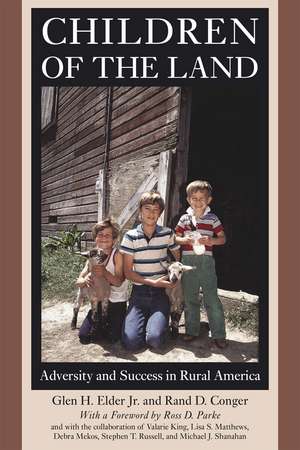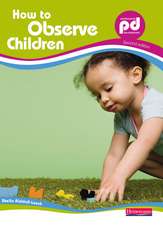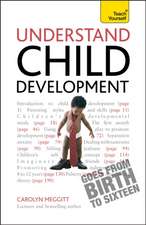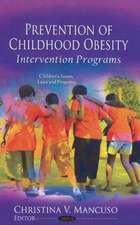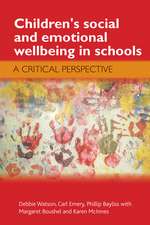Children of the Land: Adversity and Success in Rural America: The John D. and Catherine T. MacArthur Foundation Series on Mental Health and Development, Studies on Successful Adolescent Development
Autor Glen H. Elder Jr., Rand D. Congeren Limba Engleză Paperback – sep 2014
A century ago, most Americans had ties to the land. Now only one in fifty is engaged in farming and little more than a fourth live in rural communities. Though not new, this exodus from the land represents one of the great social movements of our age and is also symptomatic of an unparalleled transformation of our society.
In Children of the Land, the authors ask whether traditional observations about farm families—strong intergenerational ties, productive roles for youth in work and social leadership, dedicated parents and a network of positive engagement in church, school, and community life—apply to three hundred Iowa children who have grown up with some tie to the land. The answer, as this study shows, is a resounding yes. In spite of the hardships they faced during the agricultural crisis of the 1980s, these children, whose lives we follow from the seventh grade to after high school graduation, proved to be remarkably successful, both academically and socially.
A moving testament to the distinctly positive lifestyle of Iowa families with connections to the land, this uplifting book also suggests important routes to success for youths in other high risk settings.
In Children of the Land, the authors ask whether traditional observations about farm families—strong intergenerational ties, productive roles for youth in work and social leadership, dedicated parents and a network of positive engagement in church, school, and community life—apply to three hundred Iowa children who have grown up with some tie to the land. The answer, as this study shows, is a resounding yes. In spite of the hardships they faced during the agricultural crisis of the 1980s, these children, whose lives we follow from the seventh grade to after high school graduation, proved to be remarkably successful, both academically and socially.
A moving testament to the distinctly positive lifestyle of Iowa families with connections to the land, this uplifting book also suggests important routes to success for youths in other high risk settings.
Preț: 304.45 lei
Nou
Puncte Express: 457
Preț estimativ în valută:
58.26€ • 60.19$ • 48.49£
58.26€ • 60.19$ • 48.49£
Carte tipărită la comandă
Livrare economică 25 martie-08 aprilie
Preluare comenzi: 021 569.72.76
Specificații
ISBN-13: 9780226212531
ISBN-10: 022621253X
Pagini: 394
Ilustrații: 37 line drawings, 56 tables
Dimensiuni: 152 x 229 x 25 mm
Greutate: 0.57 kg
Editura: University of Chicago Press
Colecția University of Chicago Press
Seria The John D. and Catherine T. MacArthur Foundation Series on Mental Health and Development, Studies on Successful Adolescent Development
ISBN-10: 022621253X
Pagini: 394
Ilustrații: 37 line drawings, 56 tables
Dimensiuni: 152 x 229 x 25 mm
Greutate: 0.57 kg
Editura: University of Chicago Press
Colecția University of Chicago Press
Seria The John D. and Catherine T. MacArthur Foundation Series on Mental Health and Development, Studies on Successful Adolescent Development
Notă biografică
Glen H. Elder Jr. is the Howard W. Odum Distinguished Research Professor of Sociology and research professor of psychology at the University of North Carolina at Chapel Hill. Rand D. Conger is distinguished professor of psychology, human development, and family studies in the Family Research Group at the University of California, Davis.
Cuprins
List of Illustrations
Foreword by Ross D. Parke
Acknowledgments
Part 1: Rural Change and Life chances
1. Ties to the Land
Two Worlds of Childhood: Rural Decline and Urban Prosperity
The Iowa Project and Approach
Family Ties to the Land and Resourceful Pathways
Studying Lives in Changing Times: A Cautionary Note
2. Families and the Generations
Family Continuity in Agriculture and Kinship
Social Ties in the Community
Values to Live By
Resourceful Families and Children
Part 2: Pathways to Competence
3. Ties to Family and Land
Family Continuity and Change
Pathways to Success in High School
Developmental Risks and Success
Conclusion
4. Always Work to Do
Some Developmental Meanings of Work
The Ecologies of Children's Labor
Work Paths to Competence
Productive Work Empowers
5. Bridging Family and Community
Community Ties in a Rural Ecology
Doing Better or Worse than Expected
The Socially Embedded Family
6. Wisdom of the Ages
Ways of Grandparenting
Grandparents in Young Lives
Significant Grandparents and Successful Development
Family Strength and Social Redundancy
7. Church, Family, and Friends
Passing on Religion
From Church to Youth Group
Religious Ways and Competence
8. Lessons from School
Activity Patterns through Adolescence
Getting Involved: The Influence of Family and School
Achieving Competence through Activities
Turning Points in Activities
Lessons for Life
9. Achieving Success, Avoiding Trouble
Agrarian Culture and Youth Competence
Promoting Success and Avoiding Trouble
Questions of Resilience and Vulnerability
Putting the Story Together
Some Reflections
Part 3: Past, Present, and Future
10. Legacies of the Land
Approaches and Some Alternatives
Pathways of Resilience for Young Lives
Midwest Themes of a Rural Adolescence
Continuity and Change
Appendixes
A. The Iowa Youth and Families Project
B. Measurements I: Indicators of Competence and Success
C. Measurements II: Other Indicators by Chapter
D. Analytic Approach: Identifying Resilient and Vulnerable Youth
E. Appendix Tables
Notes
Selected Bibliography
Index
Foreword by Ross D. Parke
Acknowledgments
Part 1: Rural Change and Life chances
1. Ties to the Land
Two Worlds of Childhood: Rural Decline and Urban Prosperity
The Iowa Project and Approach
Family Ties to the Land and Resourceful Pathways
Studying Lives in Changing Times: A Cautionary Note
2. Families and the Generations
Family Continuity in Agriculture and Kinship
Social Ties in the Community
Values to Live By
Resourceful Families and Children
Part 2: Pathways to Competence
3. Ties to Family and Land
Family Continuity and Change
Pathways to Success in High School
Developmental Risks and Success
Conclusion
4. Always Work to Do
Some Developmental Meanings of Work
The Ecologies of Children's Labor
Work Paths to Competence
Productive Work Empowers
5. Bridging Family and Community
Community Ties in a Rural Ecology
Doing Better or Worse than Expected
The Socially Embedded Family
6. Wisdom of the Ages
Ways of Grandparenting
Grandparents in Young Lives
Significant Grandparents and Successful Development
Family Strength and Social Redundancy
7. Church, Family, and Friends
Passing on Religion
From Church to Youth Group
Religious Ways and Competence
8. Lessons from School
Activity Patterns through Adolescence
Getting Involved: The Influence of Family and School
Achieving Competence through Activities
Turning Points in Activities
Lessons for Life
9. Achieving Success, Avoiding Trouble
Agrarian Culture and Youth Competence
Promoting Success and Avoiding Trouble
Questions of Resilience and Vulnerability
Putting the Story Together
Some Reflections
Part 3: Past, Present, and Future
10. Legacies of the Land
Approaches and Some Alternatives
Pathways of Resilience for Young Lives
Midwest Themes of a Rural Adolescence
Continuity and Change
Appendixes
A. The Iowa Youth and Families Project
B. Measurements I: Indicators of Competence and Success
C. Measurements II: Other Indicators by Chapter
D. Analytic Approach: Identifying Resilient and Vulnerable Youth
E. Appendix Tables
Notes
Selected Bibliography
Index
Recenzii
“Excellent example of applied social science research.”
“By forcefully demonstrating how a ‘rural ecology’ contributes to a healthy life for children, Elder and Conger provide a welcome corrective to the literature on development, which has focused almost exclusively on metropolitan areas. Extended family ties, productive work, and active parental involvement in their children’s activities provide the social capital necessary for adolescents to make positive decisions and overcome adversity. More broadly, through their careful connection of life choices to life chances in historical context, the authors offer a model of sociological inquiry worthy of emulation.”
“What is it about ‘ties to the land’ that influences the development of young people? The answers the authors provide are not only analytically compelling, but they reveal invaluable insights for solving many of the problems facing our urban and suburban school communities as they struggle to provide meaningful environments for socializing and educating our adolescents into productive adults.”
